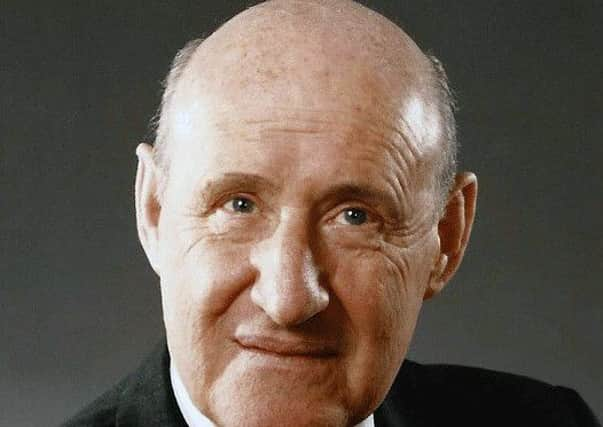Obituary: Sir Donald Barron CA, chairman of Rowntree Mackintosh


Sir Donald Barron joined the confectioner Rowntree & Co in 1962 and rose rapidly through the management structure, becoming a director in 1956 and chairman in 1966. He managed the company through a considerable period of expansion and change – introducing new products, taking over Mackintosh and fighting off unwanted bids from the American food giants Philip Morris and General Foods. It was all done with commercial flourish and a keen eye on the marketing of the company’s products. Despite Barron’s dearest wish for Rowntree Mackintosh to remain British and independent, it succumbed to a bid from the Swiss food group, Nestlé, in 1988.
The bid battle for Rowntrees was a fierce and bruising affair. Barron had to balance rival bids from Nestlé and Suchard and the situation generated much criticism both in the City and Westminster. Eventually, to Barron’s dismay, the company was sold for £2.5 billion cash. Barron was a man of much tenacity and business acumen. He had an undoubted flair for marketing new products and breathing a fresh approach into well-established brands.
Advertisement
Hide AdAdvertisement
Hide AdDonald James Barron was born in Gorebridge, Midlothian; his father, Albert Barron was an actuary and his mother Elizabeth, a teacher. The family moved to Joppa and Barron attended George Heriot’s School. On leaving school he joined in 1941 the King’s Own Scottish Borderers as a junior subaltern of the 5th Battalion. In fact Barron was to spend much of the war training in the Highlands on an intensive course in preparation for a proposed invasion of Scandinavia. That never took place and Barron was promoted to captain and served with the KOSBs through Holland to the German frontier in 1944-45. Barron’s battalion crossed the Siegfried Line and advanced across the Rhine into Germany and when peace was declared they were in Hamburg.
Barron made a considerable mark with the KOSBs. He was billeted in Holland with a Dutch family where the mother of the house wrote to Barron’s mother praising him for being a kind, caring and hard-working captain. In due course, Barron’s family received a letter from his commanding officer, saying he had “known of no officer who took more pains to master every situation which confronted him”.
Barron was badly wounded on the banks of the River Rhine by shrapnel fire and spent the last months of the war in hospital. On recovering he returned to Scotland, studied commerce at Edinburgh University and qualified as a chartered accountant with Dewar & Robertson. While at university, Barron had made a close social research into the history and business ethics of the 19th-century social Quaker reformer Seebohm Rowntree.
On qualifying Barron joined Rowntrees and was promoted to be company’s chief accountant in 1956. He rose through the company’s management structure becoming a director in 1961, the vice-chairman in 1965 and chairman in 1966.
He promoted the company’s activities and expanded such well-known confections as After Eights, Kit Kat, Smarties and Aero – after the merger with John Mackintosh in 1969 the combined firm had an international profile and a 25 per cent share of the UK confectionery market. Mackintosh had such brand leaders as Rolo and Quality Street and in 1976 Barron oversaw the launch of the successful Yorkie bar and later took over the French chocolate-maker Menier.
Baron proved an inspiring leader of a large public company. He encouraged his executives and the work force to come up with ideas, was always available and was an excellent listener. Significantly, he insisted that all meeting should take place around circular board room tables so that everyone could be seen and have their say. He was proud to have held the strong tradition of its Quaker origins and did much to support Yorkshire traditions – notably the York Academic Trust which did much to establish York University.
He was also chairman of the Joseph Rowntree Foundation and a member of the University Grants Committee from 1972 to 1981. He chaired Midland Bank from 1982 and Clydesdale Bank from 1986, served on the Council of the Institute of Chartered Accountants of Scotland and was closely involved with the building of the York Millennium Bridge. Barron remained in close touch with Heriot’s and was an influential member of the George Heriot Appeal Trust.
He was a keen sportsman for many years and played both golf and tennis from his youth. He was a regular at York Minster and was awarded honorary degrees from various universities, notably Heriot Watt, Edinburgh and York. Barron, who was knighted in 1972, met his future wife, Gillian Saville, at a Scottish country dance evening in York. They married in 1956 and she and their three sons and two daughters survive him.